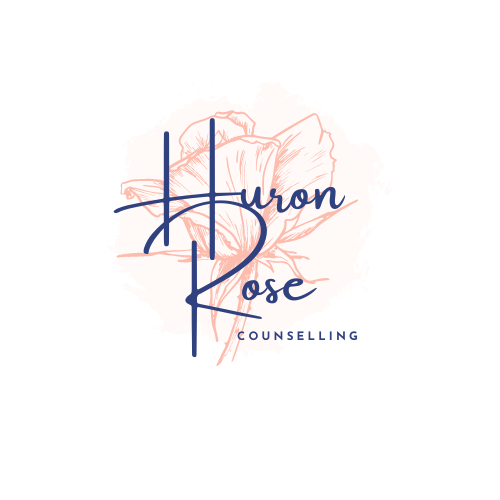

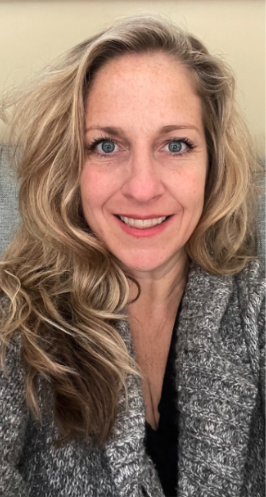
My counselling focus is to support individuals who are experiencing grief, loss and trauma (including, but not limited to); individuals, the disability community and their caregivers, entrepreneurs and leaders, first responders and health care professionals.
My name is Amy. My journey to becoming a grief and trauma therapist is long rooted in (25+ years) in many lived experiences with personal and professional losses. In 2008, I founded Recreational Respite a national organization that uniquely supports the disability community, those who face mental health struggles and other vulnerable individuals. The goal of our work has been to support those facing barriers to participation by collaboratively finding ways to reduce the isolation that often accompanies these experiences. Using diverse strategies and approaches including self discovery through recreation and activity with an emphasis on building social supports, efficacy and resilience. This has contributed to my deep understanding, interventions and innovative approaches used in counselling with the compassion for navigating the emotions of profound loss, disenfranchised grief, diverse barriers, isolation, and complex relational challenges within families while emphasizing a non-pathologizing practice.
My approach in counselling emphasizes integration of various humanistic approaches and interventions, based on an individual’s strengths and resources. These interventions can include (but are not limited to); attachment-informed, Polyvagal-informed eye movement desensitization and reprocessing (EMDR) to process traumatic experiences, interpersonal therapy, internal family systems (IFS), cognitive behaviour therapy (CBT), cognitive processing therapy (CPT), emotionally focused therapy (EFT), existential therapy, mindfulness practice and narrative therapy. A strong focus is on solution focused and strengths-based therapies that are offered with compassion, are culturally sensitive and are socially just. I am trauma-informed in my counselling approach and trained to support those with Post Traumatic Stress Disorder (PTSD) and or those who have had other traumatic experiences.
My education includes a Bachelor of Arts in Disability Studies with honours and distinction from the Toronto Metropolitan University, and a Master of Arts in Counselling Psychology with Yorkville University. I am a Registered Psychotherapist (qualifying) with the College of Registered Psychotherapists of Ontario (CRPO) and a professional practice member of the Canadian Counselling and Psychotherapy Association (CCPA). I value the opportunity to collaborate with clients in the therapeutic process, working in a non-judgemental manner, that ensures acceptance, safety, and trust.

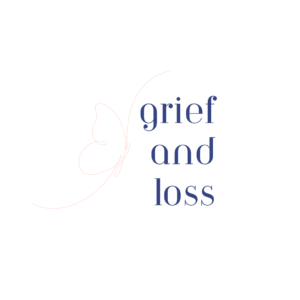
Grief and loss feels isolating and often tangled in pain and confusion. Grief is a natural response to losing someone or something that is important to us. For the grieving individual, family or community, it can be hard to find emotional regulation and meaning from a loss. Grief is experienced by the death or dying of a loved one, a major transitional change, a traumatic event or a diagnosis for self or other. Grief can also be amplified with persistent barriers that contribute to feelings of isolation, loss of a sense of role and or purpose and feeling emotionally stuck, in our lives.
Families can often experience grief and loss in an individual or collective way. A loss, death or dying event, a complicated diagnosis and or a major transition or change that has caused grief, can create isolation that contributes to unique grief struggles for both the individual and or their family. Counselling support can include a focus on trauma, anxiety and depression, to help each member of the family support one another during this challenging time. Building coping strategies and emotional and social supports, reducing isolation, and improving communication are some (but not all) of the goals in counselling sessions.
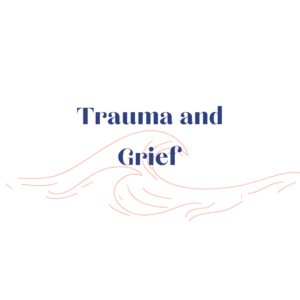
Trauma often causes intense grief experiences for an individual who might feel stuck in the grief process and or feels unable to adapt to life after a loss or traumatic event. Personal experiences of grief and loss are uniquely individual and should be supported as such. Trauma-informed care in counselling considers the impact that trauma has had on an individual’s wellbeing and their ability to cope. Grief support sessions may focus on re-establishing emotional regulation, reduce trauma symptoms, build skills and strategies to cope and process losses associated with the grief. Counselling sessions aim to collaboratively create safety, choice and trust while identifying ongoing social supports.
Counselling support with me in trauma and grief is available to all ages (children, youth and adults). It includes helping to understand an individuals experience with grief and loss due to a disability, chronic or long term illness, disease or traumatic loss.
This also includes (but not limited to) people in caregiving roles, frontline healthcare workers or first responders who have chronic and cumulative stressors, empathic distress, compassion fatigue and burnout, all while trying to manage vicarious trauma.
Individual, couples and or family sessions are available virtually across Ontario.
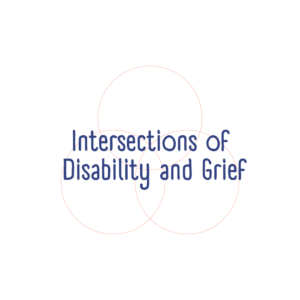
My passion is to support any persons with disabilities (and or their families). Grief and loss in this space is often about an individuals’ experience of barriers, being ‘othered’ with feelings of exclusion, lack of participation and lack of social supports while also navigating complex systems or relational challenges within family and care dynamics. Supporting those that experience grief and loss that might have come from a death, dying, chronic illness or disease, is also included in my supports.
A passionate advocate for disability rights and throughout my role as Founder of Recreational Respite (est.2008), my approach has always been to create a non-pathologizing, safe and non-judgemental space for any individual. My deep understanding of diverse barriers, navigating changes in routine, the emotions of profound loss and complex relational challenges within families, has contributed to the development of a neurodiversity-affirming practice.
Counselling goals aim to collaborate in the development of strengths and building strong and healthy social connections that matter to the individual.

Insurance and benefits coverage under psychotherapy.
Ontario Autism Program, Core Clinical Services can be used for therapy supports.


Gaming that Supports Mental Health, Grief and Loss
I recently went searching for video games that addressed grief and loss, death and bereavement, for some of my kiddos that love gaming and

Video Resources
Videos and other audio resources can sometimes offer a common and often comforting voice with a shared message about the human experience of grief

If you are in immediate crisis, please call 911, or call or text 988 for the suicide crisis hotline, available 24/7.
